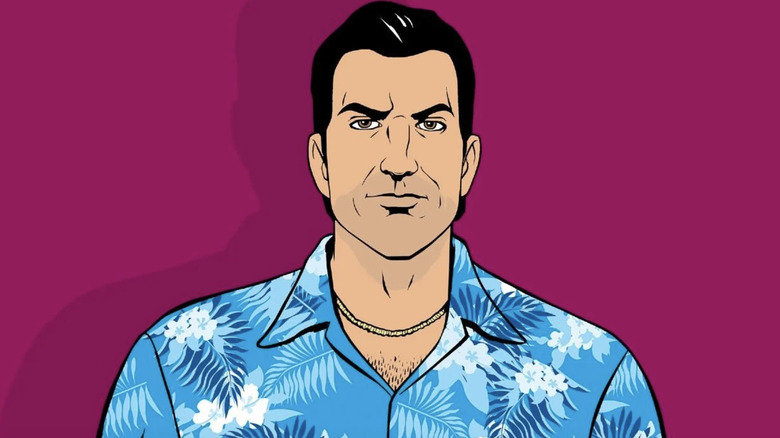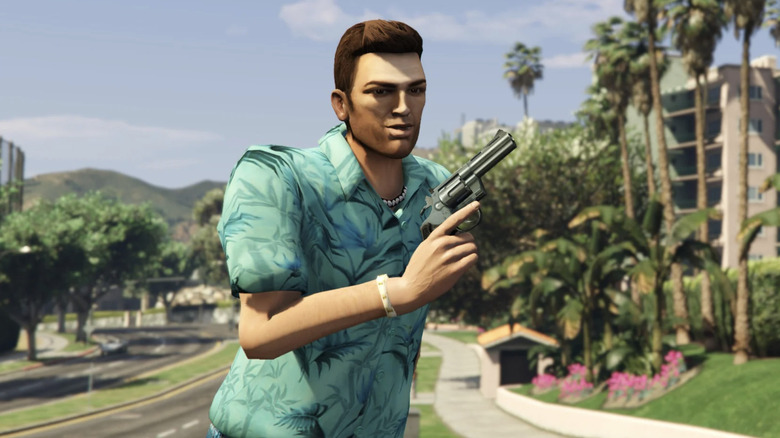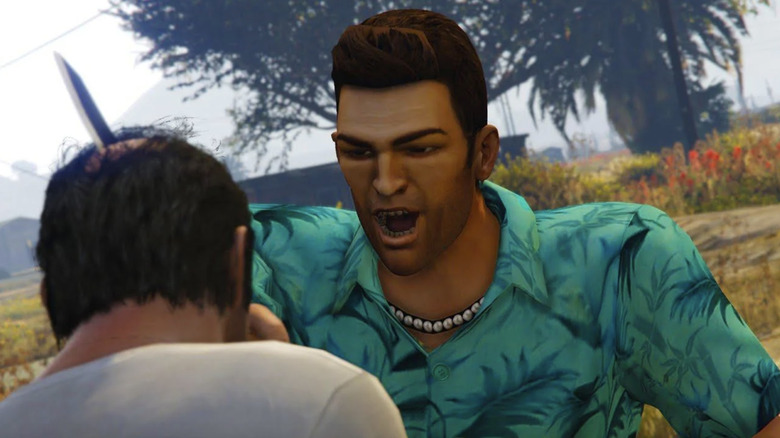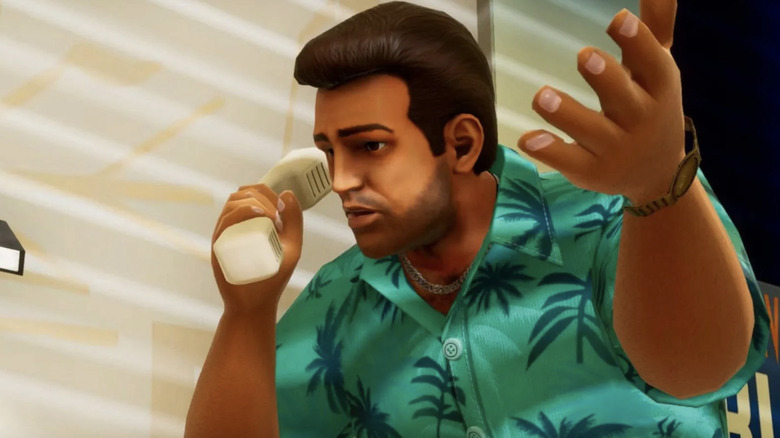Let's Talk About Ray Liotta's Most Underrated Performance
We're still reeling days after the loss of Hollywood legend Ray Liotta, the man who gave us a bevy of incredible performances across just about every genre. While known by most as Henry Hill in the Martin Scorsese masterpiece "Goodfellas," Liotta has truly done it all. He's played threatening gangsters, hilarious con men, and even had two different appearances in "Muppets" movies.
There's something indefinably remarkable about Ray Liotta, who could deliver a performance in a film like "Narc" with the same intensity and dedication as "Wild Hogs." Liotta never half-assed it, and whether he was playing a certifiable criminal badass or the goofiest dad in the trailer park, he frequently stole every second he was on screen. With over 125 credits to his name, it's nearly impossible for someone to have seen everything Liotta accomplished over the course of his 40+ year career, requiring audiences to mine through his filmography to find hidden gems and unseen wonders.
We talked last week about Ray Liotta delivering the greatest voiceover performance in cinema history through his role in "Goodfellas," which got me thinking about Liotta's career as a voiceover artist. Liotta has appeared in a variety of roles, like the Bubble Poppin' Leader on "SpongeBob SquarePants," Count Dracula in "Dear Dracula," and himself in an animated cameo for "Bee Movie." However, many forget that Liotta also lent his voice for video games, and his most memorable role turned him into a gaming icon.
That's right, I'm talking about Tommy Vercetti in "Grand Theft Auto: Vice City."
'Tommy Vercetti, remember the name'
When "Grand Theft Auto 3" was released in 2001, it was a revolution in video gaming. The open world of lawlessness allowed players to fully control the destiny of the silent protagonist, Claude. Players could get caught up in a world of crime–looting, killing, assaulting, and driving like an absolute maniac, and players couldn't get enough of it. I don't want to be the type of person who tries to view a property through the moral lens of 2022, but "Grand Theft Auto III" has aged like an avocado cut in half and exposed to the air.
The following year, Rockstar Games released "Grand Theft Auto: Vice City," which took everything that made "Grand Theft Auto III" groundbreaking and, while still questionable in its depictions of violence, sex, and racial insensitivity, perfected the gameplay that the franchise would be known for in years to come.
"Vice City" transported players to a crime-ridden paradise inspired by 1980s Miami, clearly pulling references to both the show "Miami Vice" and the cocaine-fueled masterpiece that is "Scarface." The game introduced players to Tommy Vercetti, a criminal looking to move up the ranks and become the city's greatest drug kingpin while dealing with rival gangs, the war on drugs, and a surge in glam metal popularity. Most notably, however, Tommy Vercetti actually had dialogue, and "Grand Theft Auto: Vice City" marked a turning point for the series. The addition of a protagonist voice allowed for a deeper connection to be made between player and character, and Liotta turned Tommy Vercetti into an icon.
'Please, run away and shut your mouth'
"Grand Theft Auto: Vice City" boasts a pretty impressive voice cast, with Liotta joined by Gary Busey, Luis Guzman, Danny Trejo, David Paymer, Lawrence "L.T." Taylor, and Jenna Jameson. In 2002, Liotta talked to IGN about his experience working on the game, and called it a lot of fun. "There's great people on this one and I did my homework with it," he said. "I know it's a pretty intense game," he added through his trademark smile. "I was trying to go under the radar with it."
"Vice City" was the furthest thing from under the radar, becoming the best selling video game of 2002 and selling over 5 million copies in advance of its release. Liotta felt he was underpaid for his work considering the massive success the game found upon release, but also found the performance to be one of the most challenging in his career.
"You're creating a character that's not there before," he told IGN. "I'm the player, so you see my guy, but it's kind of like I'm you or you're me." Given the open world nature of "Grand Theft Auto" games, Liotta had to record lines for every possible decision a player could make in the game. "If I talk to one guy I'll be talkin' one way and if somebody else shows up and you choose to talk to somebody else, it's a whole other different thing," he said. "The scenarios that go on, it's exhausting." Despite the taxing requirements, Liotta delivered every step of the way.
An impact beyond Hollywood
The introduction of Tommy Vercetti changed the "Grand Theft Auto" games forever. Storytelling became as essential to "GTA" as the trademark gameplay, and allowed players to explore the depth of criminal characters beyond primal instincts, greed, and a need for revenge. Players were given the chance to get inside the mind of their player, and find the redeemable aspects of a character who spends an entire game being a ruthless b******. Sure, Tommy is a criminal mastermind who would happily kill every "dumb, Florida, moron" if it meant it could help him get ahead in the game, but he's also ridiculously intelligent and funny as hell.
Liotta won the award for Best Live Action/Voice Male Performance at the 2003 G-Phoria Awards and Best Performance by a Human at the 2003 Spike Video Game Awards for his performance as Tommy Vercetti, both completely well earned accolades. As we continue our collective mourning over the loss of one of Hollywood's greatest, it's important that we not forget the impact Liotta had outside of the silver screen.



